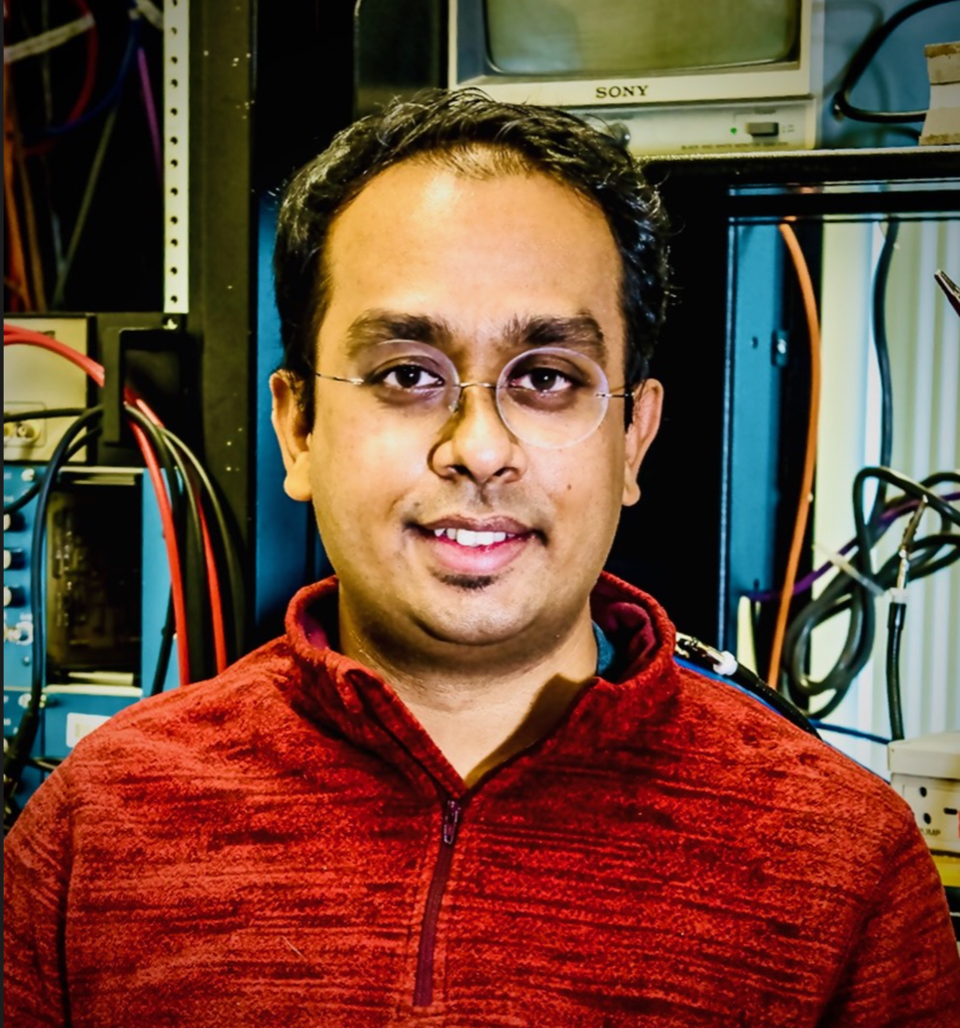Jessica Forness




As a student, Aqua Asberry, HT(ASCP)CM, studied chemistry and was determined to become a forensic scientist. An intuitive mentor steered her towards histology, and Ms. Asberry is currently Research Histology Manager at Parker H. Petit Institute for Bioengineering and Bioscience at Georgia Tech.

Ratan is an Assistant Professor of Cognition and Brain Science in the School of Psychology at Georgia Tech, and the Director of the Murty Lab (murtylab.com). He obtained his PhD from Indian Institute of Science (IISc) Bangalore and was a postdoctoral researcher in the Kanwisher and DiCarlo labs at MIT before moving to Georgia Tech. Research in the Murty Lab aims to uncover the neural codes and algorithms that enable us to see. The central theme of the lab's work is to integrate biological vision with artificial models of vision. The lab combines the benefits of closed-loop experimental testing (using 3T/7T human functional-MRI) with cutting-edge computational methods (like deep neural networks, generative algorithms, and AI interpretability) toward a new computationally precise understanding of human vision. This research also guides the development of neurally mechanistic biologically constrained models aimed to uncover a better understanding of the neurobiological changes that underlie perceptual abnormalities such as agnosias.

Dr. Simone Douglas-Green (@DrBlackBoots on Twitter/X and Instagram) is a new Assistant Professor in the Wallace H. Coulter Department of Biomedical Engineering at Georgia Tech and Emory University, where she has been named a BME Distinguished Faculty Fellow. She received her B.S. in Biomedical Engineering from the University of Miami, and her Ph.D. in Biomedical Engineering from the joint program at Georgia Tech and Emory University. Dr. Douglas-Green’s professional and scholarly development as a doctoral and postdoctoral trainee has been supported by a number of awards including the Alfred P. Sloan Foundation's Minority Ph.D. (MPHD) Fellowship, NASEM Ford Foundation Postdoctoral Fellowship, and Burroughs Wellcome Fund Postdoctoral Enrichment Program (PDEP). The Douglas-Green Lab focuses on developing tools/techniques to study how biology interacts with nanoparticles with an emphasis on understanding person and disease specific proteins coronas. Her goal is to train the next generation of engineers to be “EPIC”- engineering with purpose, intentionality, and compassion.

Biography
Research Interests
Previously an associate professor of chemical & environmental engineering, biomedical engineering, and molecular biophysics and biochemistry at Yale University, Wilson joined Georgia Tech in 2016. His research group focuses on establishing an integrated experimental and computational framework to translate our understanding of the fundamental principles of biophysics and biochemistry (i.e., the physicochemical properties that confer function) into useful processes, devices, therapies, and diagnostics that will benefit society.
Education
PhD, Rice University

Education
B.S., Chemistry, Massachusetts Institute of Technology, 2004; B.S., Aerospace Engineering, Massachusetts Institute of Technology, 2004; M.A., Chemistry, Brown University, 2006; Ph.D., Chemistry, University of California Berkeley, 2010
Research
Dr. Stockton joined the School of Chemistry and Biochemistry at the Georgia Institute of Technology in January 2015. Her research plans include (1) instrument development for in situ organic analysis in the search for extraterrestrial life, (2) microfluidic approaches to experimentally evaluating hypotheses on the origin of biomolecules and the emergence of life, and (3) terrestrial applications of these technologies for environmental analysis and point-of-care diagnostics.

Educational Experience:
Doctor of Philosophy, December 2009, Georgia Institute of Technology (Bioengineering), Masters of Science, May 2003, Brown University (Bioengineering), Bachelor of Science, May 2002, Brown University (Mechanical Engineering)
Research Interests:
Wheeled mobility and seating, Pressure ulcer prevention and early detection, Assistive technology, Rehabilitation engineering.


Svjetlana Miocinovic is a board-certified neurologist specializing in Parkinson’s disease, dystonia, tremor and other movement disorders. She graduated from medical school in 2009 at Case Western Reserve University (Cleveland, Ohio) where she also obtained a PhD in biomedical engineering. She completed neurology residency and clinical movement disorders fellowship at University of Texas Southwestern Medical Center (Dallas, Texas). Her post-doctoral training and clinical research fellowship were at the University of California San Francisco Movement Disorder and Neuromodulation Center. In 2016, she joined the Department of Neurology at Emory University (Atlanta, Georgia). Her clinical focus is on using deep brain stimulations (DBS) to treat movement disorders. She also directs an NIH-funded human electrophysiology laboratory and is an investigator with Emory's Udall Parkinson's Disease Research Center of Excellence. The research focus of her laboratory is on electrophysiology of human motor and non-motor circuits, and development of new device-based therapies.